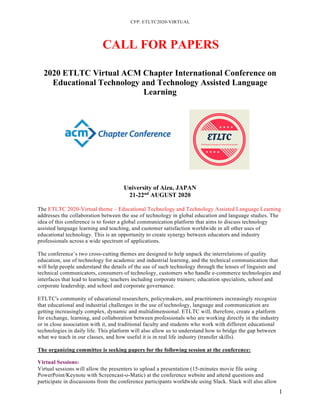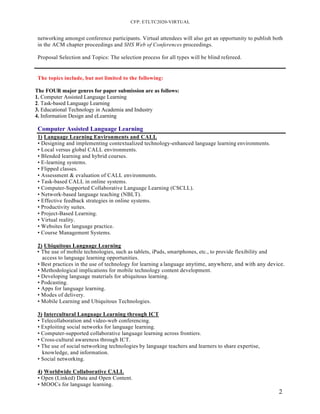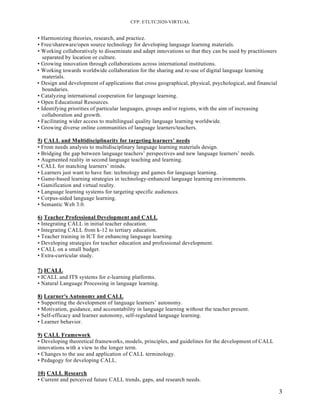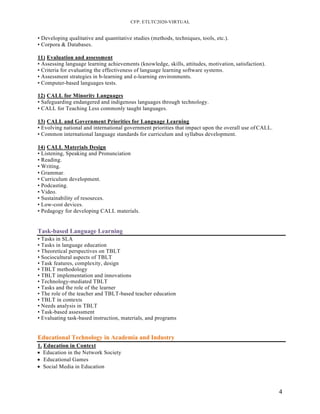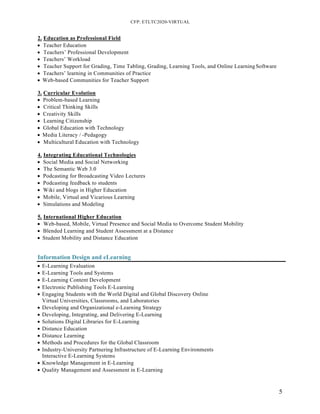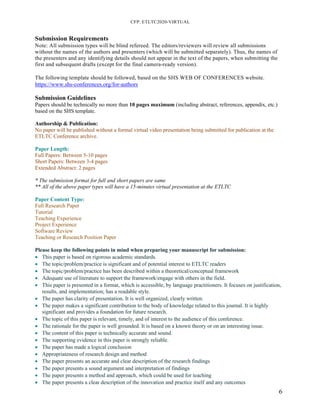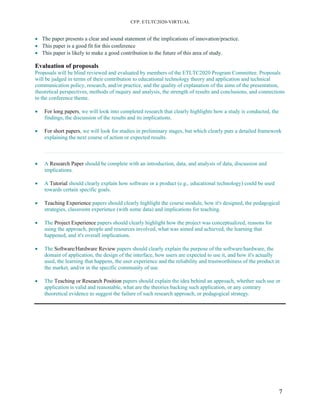The document is a call for papers for the 2020 ETLTC Virtual ACM Chapter International Conference on Educational Technology and Technology Assisted Language Learning. The conference will focus on the collaboration between using technology in education and language studies, and creating a global platform to discuss technology-assisted language learning. Presentations will be in a virtual format, allowing presenters to upload presentations and participate in discussions remotely. Topic areas for papers include computer-assisted language learning, task-based language learning, and using educational technology in academia and industry.
